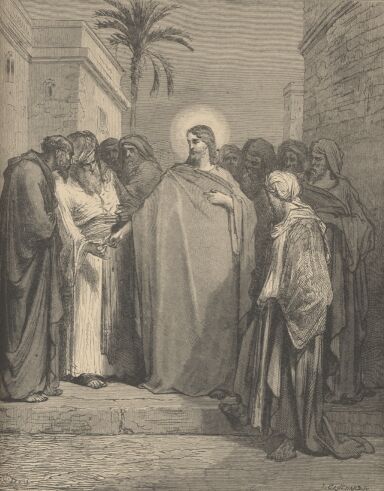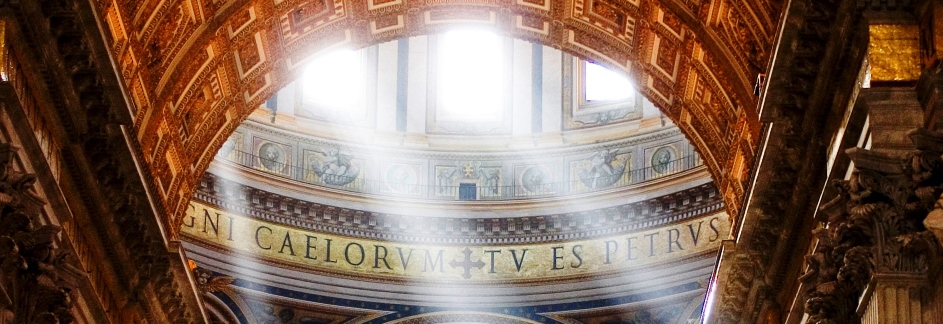The views expressed in our content reflect individual perspectives and do not represent the authoritative views of the Baha'i Faith.
The nature of Christ’s return — “in”, “on”, and “with” the clouds of heaven – has become so widely known that even non-Christians recognize the prophecies about how Christ will return.
… they shall see the Son of man coming in the clouds of heaven with power and great glory. – Matthew 24:30
Many understand His Return as a literal prophecy, for everyone will see it:
Behold, he cometh with clouds; and every eye shall see him . . .- Revelation 1:7
Yet, when asked about His Return, Jesus had this to say:
And take heed . . . lest at any time your hearts be overcharged with . . . cares of this life, and so that day come upon you unawares. – Luke 21:34
How is it possible that every eye will see Christ’s return, yet be unaware that it took place? Is it possible that His return on clouds has a deeper spiritual explanation? Is it possible that all will see Christ’s return but not recognize it, leaving them unaware that He has actually returned?
Baha’u’llah explains the symbolic nature of “coming in clouds” using an analogy — that much like physical clouds prevent one from seeing the physical sun; spiritual clouds prevent one from seeing God, the spiritual source of light. He then explains several conditions that produce these clouds.
First, Baha’u’llah says that the physical nature of God’s Divine Teacher represents one type of spiritual cloud. When Christ appeared as a common man, rather than as a ruling king, the clouds of people’s perceptions prevented them from seeing His divinity.
Another cloud occurs when Scripture becomes fulfilled symbolically rather than literally. Many rejected Jesus when they failed to perceive that prophecies, like the return of Elijah, were fulfilled symbolically.
A third cloud occurs when the Divine Teacher changes laws or judgments of a previous religion. When Christ allowed His disciples to pluck corn on the Sabbath Day, an act condemned in the Old Testament, this cloud prevented the Pharisees from seeing Christ’s divine nature. Even Christ’s response to their criticism did not move their understanding. He said:
The sabbath was made for man, and not man for the sabbath: . . . – Mark 2:27-28
In other words, the Sabbath’s creation did not happen so man would be prohibited from working. Instead, God created the Sabbath so humanity would have a day set aside to commune with Him — something the disciples actually did as they plucked the corn and communed with Christ.
Similarly, when Jesus changed the law of divorce (Matthew 5:31-32) or when He changed the harsh punishment associated with committing adultery (John 8:1-11), both changes served as clouds that prevented many of the Jews from comprehending His divine nature. Instead, they condemned Christ for changing what God said could never be changed:
. . . hearken, O Israel, unto the statutes and unto the judgments, which I teach you, . . . Ye shall not add unto the word which I command you, neither shall ye diminish aught from it . . . – Deuteronomy 4:1-2
They failed to recognize that the Old Testament’s warning was directed at humanity, not at God Himself. God is never constrained from changing His own law, and through Jesus, He could certainly change the law.

Jesus and the Pharisees
A fourth cloud occurs when illiterate souls are exalted over learned ones. For example, no one would have anticipated that fishermen would grasp the spiritual implication of Scripture over learned Pharisees and Sadducees. This condition therefore served as a spiritual cloud, for many placed their trust in religious leaders, and failed to seek the truth on their own.
Christ’s return in spiritual clouds seems more reasonable than returning on physical clouds when one recognizes that Christ also foretold that He would appear as a thief:
Be watchful … If therefore thou shalt not watch, I will come on thee as a thief, and thou shalt not know what hour I will come upon thee. – Revelation 3:23
Be ye therefore ready also: for the Son of man cometh at an hour when ye think not. – Luke 12:39-40
Christians generally do not expect that Christ will come and go without them noticing. They fail to see that although a thief comes suddenly, unexpectedly, when people are unprepared, he also comes quietly while people sleep. A thief’s appearance is not accompanied by loud banging on a door. Instead, he enters quietly, taking what he wishes; then he leaves as quietly as he came. The homeowner, of course, does not know the thief has come until he has both come and gone. In Baha’u’llah’s case, He has appeared and has gone, and increasingly people have begun to realize that the Baha’i revelation fulfills the promise and the prophecies of Christ’s return.
Read the next article in the series: Exploring Christ’s New Name
Read the previous article in the series: Christianity and the Baha’i Faith
















Comments
Sign in or create an account
Continue with Googleor